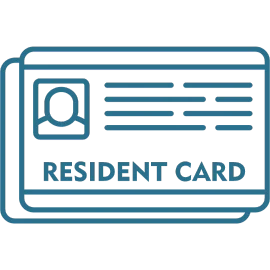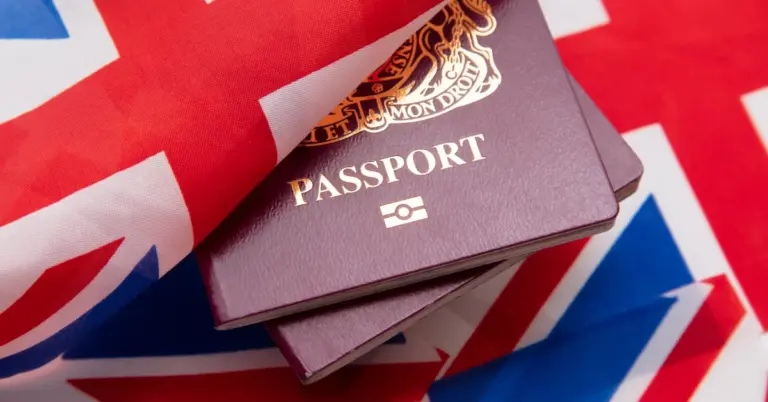Securing your long-term future in the United Kingdom often involves moving from limited leave to remain to indefinite leave to remain (ILR). Achieving ILR allows you to live, work, and study in the UK without time limits or further need to apply for additional visas. This status is not only a key stage for those wishing to settle permanently, but also often paves the way towards British citizenship.
Below, we explain the difference between limited and indefinite leave to remain, the main benefits of ILR, who is eligible, and how to apply for this important status.
Key Points
- Indefinite leave to remain grants the right to stay in the UK without any time restrictions, removing previous visa conditions.
- Most people qualify for ILR after five years on an eligible visa, or after ten years of lawful residence in the UK.
- Requirements include continuous lawful residence, limited absences, passing the Life in the UK Test, and meeting a set English language level.
- A refusal could affect your immigration status and future visa applications.
- Careful preparation, accurate documentation and expert legal support are crucial for a successful outcome.
What Is Limited Leave to Remain?
Limited leave to remain is a temporary immigration status that allows non-UK nationals to stay in the UK for a specific period, under certain conditions. This leave is granted to people on visas such as the Skilled Worker visa, Student visa, or Spouse visa.
If you hold limited leave to remain, you must follow the conditions attached to your visa. These conditions could include limits on employment, type of study, or access to state benefits. For instance, Skilled Worker visa holders can only work for the employer that sponsors them, while Student visa holders must study at the university listed on their visa.
Once your visa ends, you are expected to leave the UK, unless you extend your stay or successfully switch to another visa category.
What Is Indefinite Leave to Remain (ILR)?
Indefinite leave to remain (ILR) is a type of permanent residency that lets you live in the UK without any time limits. Once you receive ILR, you are no longer bound by the restrictions and expiry dates that apply to limited leave to remain. ILR allows you to work, study, start a business, and access public benefits in the UK, similar to the rights of a British citizen.
To be eligible for ILR, you generally need to have lived in the UK for five years on a qualifying visa, such as a skilled worker visa, spouse visa, or through long residence. You must also meet requirements related to your time spent in the UK, any absences abroad, your English language skills, and your knowledge of life in the UK.
Receiving indefinite leave to remain is an important step for anyone wanting to settle permanently in the UK. It offers long-term stability and is a key prerequisite for applying for British citizenship once you fulfil the additional criteria.
Why Move from Limited Leave to Indefinite Leave to Remain?
The main benefit is security: ILR removes concerns about having to renew visas or comply with specific conditions based on your previous leave. With ILR, you:
- Can change jobs, start your own business, or further your studies without applying for another visa.
- Gain access to benefits and public services, which are usually restricted for those on limited leave.
- Are free to travel in and out of the UK, provided long absences do not cause you to lose your status.
- Are positioned to apply for British citizenship.
Who Is Eligible for Indefinite Leave to Remain?
Eligibility for ILR depends on your visa category and the time you have spent lawfully in the UK. The main categories are:
- Five-year route: Most Skilled Worker, Spouse, and UK Ancestry visa holders can apply after five years of continuous lawful residence.
- Ten-year route: Individuals who have spent ten years in the UK with legal, uninterrupted residence may apply under this long residence route, regardless of visa type.
- Family and private life route: Individuals on these routes may also qualify after ten years, if they meet all relevant requirements.
You must make sure your absences from the UK do not exceed 180 days in any twelve-month period during your qualifying residency. Also, your immigration history must demonstrate that you have complied with UK visa rules, with no periods of overstaying or unlawful gaps in your leave to remain.
Other requirements include:
- Sufficient knowledge of the English language, normally at level B1 CEFR or higher.
- Passing the Life in the UK Test.
- Demonstrating good character and a clean immigration record.
- Not having breached immigration laws or overstayed any visas.
Certain categories, such as the Global Talent visa, offer a faster route to ILR, but all applicants must show their residence and strong ties to the UK.
How to Apply for Indefinite Leave to Remain
A successful ILR application relies on careful preparation and accurate documentation. Here is what you should do:
- Check Your Eligibility: Ensure that you have completed the minimum residence period for your visa category and that you meet all requirements, including absences and knowledge of English.
- Collect Supporting Documents: Gather all necessary evidence, such as your current passport, proof of UK residence throughout the qualifying period, evidence of continuous lawful status, and certificates for the Life in the UK Test and English language ability.
- Submit the Application Online: Complete the relevant ILR form on the UK government website, fill in the details accurately, and pay the application fee.
- Attend a Biometric Appointment: You will need to book an appointment at a UKVCAS centre to provide your fingerprints and photograph.
- Wait for a Decision: Processing times are usually up to six months, but a faster, premium service is available for an additional fee. If successful, you will receive official confirmation of your indefinite leave to remain.
If your application is successful, you will be granted indefinite leave to remain, which confirms your right to live in the UK without any time restrictions.
Can an ILR Application Be Refused?
Yes, your application for indefinite leave to remain can be refused if you do not fully meet the eligibility criteria. One common reason for refusal is failing to demonstrate continuous lawful residence throughout the qualifying period. This can include gaps in your immigration status or spending too much time outside the UK.
Other reasons for refusal include:
- Not passing the Life in the UK Test
- Failing to meet the English language requirements
- Submitting incomplete or incorrect documents
- Having a criminal record or a negative immigration history
- Overstaying your visa at any point
- Providing false or misleading information in your application
In most situations, there is no right of appeal against an ILR refusal. However, an appeal might be possible in exceptional cases, such as when the refusal affects your human rights, like your right to family or private life. Otherwise, you would generally need to request an administrative review or submit a new application after correcting the issues that led to the refusal.
A refusal can affect your ability to stay in the UK or apply for future visas. It is highly recommended to carefully review your application and seek legal advice before submitting it.
Secure Your Indefinite Leave with Professional Support
At JPS Immigration, we specialise in supporting applicants for indefinite leave to remain. Our team can clarify your eligibility, assist with gathering documents, and guide you through every step of the process. We provide expert advice that gives you the best chance of success and helps you avoid costly mistakes.
Contact us today for a confidential discussion and tailored assistance for your ILR application.
For insights into the broader UK immigration landscape, you may find our article on the UK Immigration White Paper 2025: Proposals to Reform the Migration System informative.
FAQs
What are the eligibility criteria to apply for ILR?
You may be eligible if you have held limited leave to remain for a continuous qualifying duration, typically five years. You must show that you have lived lawfully in the UK, passed the Life in the UK Test, met the English language requirement, and not exceeded the permitted absences from the UK during the qualifying period.
How long do I need to have lived in the UK to apply for indefinite leave to remain?
In most cases, you must have been in the UK for at least five continuous years on an eligible visa to qualify for ILR. However, some routes may require longer or shorter periods. For example, long residence applications require 10 years, while certain accelerated routes may allow ILR after just three years.
Do I need to take the Life in the UK Test to apply for indefinite leave to remain?
Yes, passing the test is a compulsory requirement for most ILR applicants. The test assesses your knowledge of UK history, values, institutions, and everyday life. You must pass it before submitting your application, and the pass certificate must be included with your supporting documents.
Can I work in the UK while waiting for my application to be reviewed?
If you have valid limited leave to remain at the time of your ILR application, you can continue to work in the UK while you wait for a decision. However, if your leave expires before a decision is made and you haven’t applied for an extension or are not protected by Section 3C leave, your right to work may end.
What is the distinction between leave to remain and indefinite leave to remain?
Leave to remain is a time-limited permission to stay in the UK, usually attached to specific visa conditions. Indefinite leave to remain grants permanent residence, removing visa time limits and conditions.











































